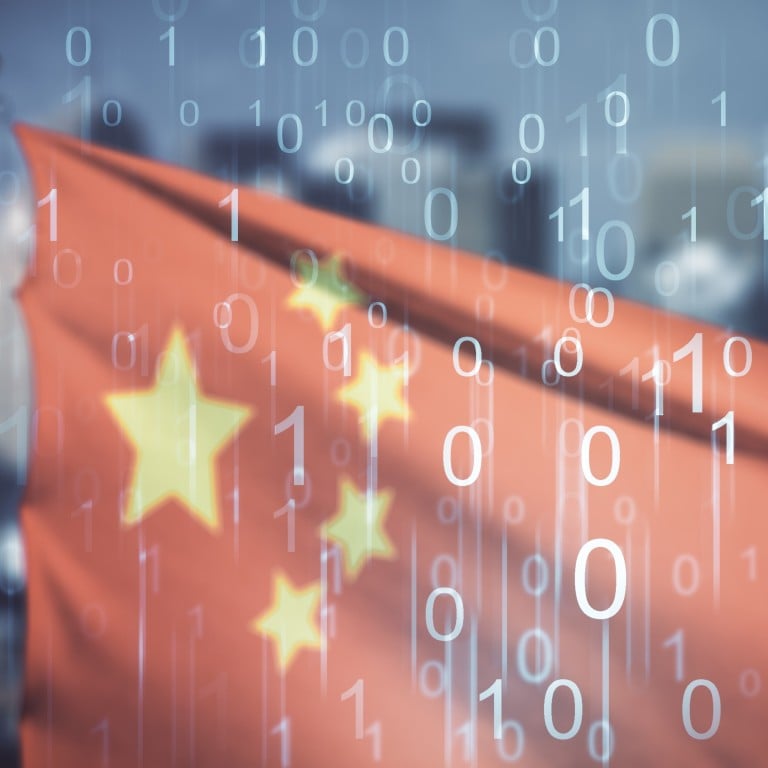
The Dutch software company that could shape EU-China relations for decades
- Datenna is using open source intelligence to furnish governments with the data they need to make policy decisions on China
- In a rare interview, chief executive Jaap van Etten tells how a decade working in science and technology in Beijing put him ahead of the curve
In an old printworks encased in brown bricks, nestled above a sushi joint in the Dutch city of Eindhoven, sits the most important European company you may never have heard of.
Datenna – a portmanteau of “data” and “antenna” – sells software. If the foosball table in the staff area does not give away its line of business, the low-level house music pumped into a bar area populated with bottles of colourful liquor surely will.
Datenna uses open source intelligence (OSINT) to furnish governments with the data they need to make policy decisions on China.
The company does not consult or advise, nor does it work with private businesses. It only provides state actors with unfathomable levels of detail on the business, administrative and technological landscape in the world’s second largest economy.

And, as governments look to build out economic security policies designed to curb or catch up with China’s advancements – all while Beijing is restricting access to official data – this information is getting to be like gold dust.
The company’s software tracks “an incredibly vast array of detail, including intricate details of over 45 million corporate entities and research institutes within China”, chief executive Jaap van Etten told the South China Morning Post in a rare interview.
Governments that buy the software as a service can trawl through reams of data, as they would using a search engine, to help them decide whether a Chinese company or organisation investing in Europe – or receiving European investment – has military connections, for example.
“Datenna is more than a company, we are a response to a changing world, providing indispensable insights into China’s techno-economic landscape,” van Etten said.
In Europe, the topic of data is percolating through almost every conversation on China. It is set to become a defining issue of the next five years if Ursula von der Leyen seals another term at the top of the European Commission in June, as expected.
European businesses complain that China’s rules on data transfers are too vague and “pose serious operational and compliance challenges” for companies that need to make global decisions.
EU firms want more ‘clarity’ in China’s data regulations, but will they get it?
Officials in national capitals fret that the data harvested by Chinese-owned companies could be accessed by powers in Beijing, pointing to Nuctech scanners at airports across the continent and the 134 million users of short video app TikTok within the European Union as examples.
At the EU level, a debate is forming about whether Europe, which is considering slapping tariffs on Chinese-made electric vehicles and solar panels, is asking the right questions when it comes to trade policy.
“These electric vehicles harvest ginormous amounts of industrial data … You may think you’re simply driving a car, but China is building a massive database. We don’t know what advantages this might bring,” said a senior EU official, who asked not to be named.
But in Brussels at least, the true value of data is most frequently talked about in relation to von der Leyen’s plans – announced on the last day of March a year ago – to de-risk the relationship with China.
EU’s plans for tougher China stance risk coming off the rails
Von der Leyen’s economic security strategy calls for the 27 member states to screen outbound investments into sensitive sectors of the Chinese economy. It also pushes for an EU-wide export controls regime to stop sensitive tech falling into the hands of the People’s Liberation Army.
In a cafe in Brussels the day after the announcement, one senior official complained that the EU was not equipped to roll out such ambitious plans: “How can we track private company’s investments in China, let alone control them?”
The official, nervous about the levels of data required to forge effective policies across 27 countries, noted “there’s a reason the US has spent five years working on outbound investment screening and still doesn’t have a plan”.
“If all [von der Leyen] wants is an announcement, that can be ready tomorrow. But if you want a functional policy, that will take years,” the official said.
EU slows China de-risking plans in face of member state resistance
The situation had barely progressed in January, when the EU released further details on the package, along with an announcement that consultations and risk assessments among the member capitals would take more than a year.
At the time, European trade chief Valdis Dombrovskis told the Post that “on outbound investment, that’s certainly an area that many member states have voiced caution or criticism”.
“But it’s clear that we don’t have much information because neither EU nor member states are actually monitoring outbound investment and doing risk assessments on investments that may end up being sensitive technologies,” he said, adding that data gathering would start now.
Long-time EU trade group chief leaves Beijing with mixed messages about investment
Van Etten sympathises with the policymakers’ plight. In his 10 years working in science and technology in Beijing – much of it as a diplomatic attaché for the Dutch embassy – he ran into similar problems every day, leading to the founding of Datenna, he said.
“I observed the rapid ascent of China as an economic and innovation powerhouse, a shift largely unnoticed globally. It became clear to me that there was a pressing need to understand this transformation and its geopolitical implications.”
With his background in software engineering and experience with a search engine company, van Etten saw the untapped potential of OSINT, “especially regarding China’s advancements in universities, companies and R&D”.
“I understood that traditional, manual data collection methods were inadequate to keep pace with China’s rapid development,” he said.
As governments scramble to build a comprehensive picture of investment flows into China, Datenna is arguably uniquely positioned to capitalise.
“We recognised as early as 2014 the significant impact China was poised to have on the global economy and the technology sector. However, it wasn’t until 2018 that the market fully understood,” van Etten said.
“In essence, being ahead of the curve then enabled us to perfectly time our market entry.”
The EU’s early efforts to build these policies have been plagued with infighting and territorialism. Member states have accused Brussels of trying to seize powers that ordinarily reside in capitals, and of conflating national security issues with economic concerns.
Europe is no one’s vassal, ‘relaxed’ Xi tells EU leaders in Beijing
“It’s going to be extremely difficult,” said Francesca Ghiretti, a specialist on the European economic security landscape at the Centre for Strategic and International Studies.
“Most member states not only don’t have that data, but they don’t know how to gather that data. And they barely have the capacity to gather the data on inbound investments, let alone on outbound export controls,” she said.
But accessing the data is only part of the problem, according to Ghiretti. Capitals are also reluctant to share sensitive commercial information among fellow EU members, which also compete with each other economically.
There is a security issue too. Information shared in Brussels ultimately – inevitably – leaks to the press, while the presence of Hungary, a close ally of China, in the room has given some governments pause for thought, Ghiretti said.
China sees Europe as key trade partner, Xi tells visiting EU leaders
Despite the early teething problems at the EU level, economic security is not going away.
“The world is not all of a sudden going to become more secure, the world is becoming more complicated. Eyes and minds will become more focused on these issues,” said another senior EU source.
Van Etten describes the task facing policymakers – of “piecing together the economic and technological puzzle of China” – as formidable, “especially when it comes to implementing export controls and managing outbound and inbound investments”.
China-Germany ties are resilient despite EU push to ‘de-risk’: Beijing envoy
The primary challenge is the scale. Maintaining the data on a daily basis “could easily turn into a full-time job”, with the laborious nature of data gathering making a huge market opportunity for Datenna and other providers, he said.
“To draw an analogy, when you need to write a letter, you don’t create a new word processing software, you use existing tools like Microsoft Word or Apple Pages. Similarly, in navigating the intricate economic landscape of China, the use of specialised software becomes indispensable.”
According to van Etten, Europe is on a “journey towards understanding the full scope” of the implications of data in economic and security policies.
“There’s a growing realisation [in the West] of how integral this data is, not just to China but to any major player on the global stage,” he said.
“Better data leads to better intelligence … this is a lesson that China, through its history of catching up and now leading in certain areas, exemplifies and one that the West is increasingly appreciating.”

